News from the Central Florida Chapter

Winter 2025 Workshop
Sorry, this workshop has reached maximum capacity! We are no longer accepting registrations.
Date: Wednesday. February 5, 2025
Time: 10am – 3pm
Location: Azalea Lodge at Mead Botanical Gardens
HOSTED BY
City of Winter Park Natural Resources & Sustainability Department
SPONSORED BY

AGENDA
(Subject to change – Most recent update – 2/4/25)
10:00am – Welcome – Gloria Eby, FLMS Vice President
10:05am – 10:25am
Multivariate Analyses of Winter Haven’s Lakes Data
Dan Schmutz, M.S. – Vice President – Greenman-Pedersen, Inc.
10:25am – 10:45am
Middle St. John’s River Basin Coordination Efforts
Cammie Dewey, P.E
Strategic Planning Basin Coordinator – Middle St. Johns River Basin
10:45am – 11:05am
LAKEWATCH Updates
Daniel J Willis
Research Coordinator II – LAKEWATCH University of Florida
11:05am – 11:20am – Networking break
11:20am-11:40am
A Liberal Arts-Based Approach to Freshwater Education
Kassy Holmes, Program Manager – Freshwater Alliance at Rollins College
11:40am – 12:00pm
Asian Swamp Eels (Synbranchiformes: Synbranchidae) in Florida Fresh Waters
Nick Trippel, Research Administrator – Florida Fish and Wildlife Conservation Commission
12:20pm – 12:10pm
Loch Haven Chain of Lakes, Grassroot Efforts to Legislation Appropriation
Ron Hart, M.S, Chief Limnologist – Surface Water Professionals, LLC
12:10pm – 12:30pm
Howell Creek Stabilization & Restoration Post Hurricanes
Gloria Eby, M.S., Director – Department of Natural Resources and Sustainability – City of Winter Park
12:40pm – 1:00pm Lunch (Included!)
1:20pm – Leave for boat ramp via carpools
2:20pm – Boat tours leave the dock
3:20pm – Boat tours arrive back at the dock
Spring 2017 Workshop Summary
Tuesday, March 14, 2017
Circle B Bar Reserve, Lakeland
4399 Winter Lake Rd, Lakeland, FL 33803
10am to 2:30pm
Hosted by
Polk County & Polk’s Nature Discovery Center

Sponsored by
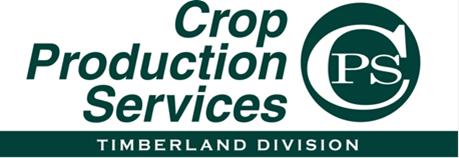
Agenda
FLMS does not keep presentations. Please click on the speaker’s name to contact them directly for more information.
Environmental Changes on Polk County Managed Natural Areas – Gaye Sharpe, Natural Areas Manager, Polk County
Ambient Monitoring, A Laboratory Perspective – Diane Gibson, Laboratory Manager, Polk County
Challenges with Newly Invading Invasive Aquatic Plants in Central Florida Lakes– Bryan Finder, Natural Areas Coordinator, Polk County
“Practicing What We Preach” Herbicide Safety and Awareness – Stephen Montgomery, Senior Biologist, Allstate Resource Management
Robust Interpolation of Water Levels and Ecological Conditions at Unmonitored Wetlands using Regression-kriging – Dan Schmutz, Vice President & Chief Environmental Scientist, Greenman-Pedersen, Inc.
Everything you ever wanted to know about limnology in 15 minutes! – Ron Hart, FLMS President & Water Resources Director, Lake County Water Authority
Guided Tram Tour of Circle B Bar Reserve – Tabitha Biehl, Polk’s Nature Discovery Center
******************************************************
Spring 2016 Workshop Summary
Thursday, March 3, 2016 ~ 10:00 a.m. – 3:00 p.m.
Berlinsky Community House ~ 300 Monument Ave, Kissimmee, FL
Sponsored by:
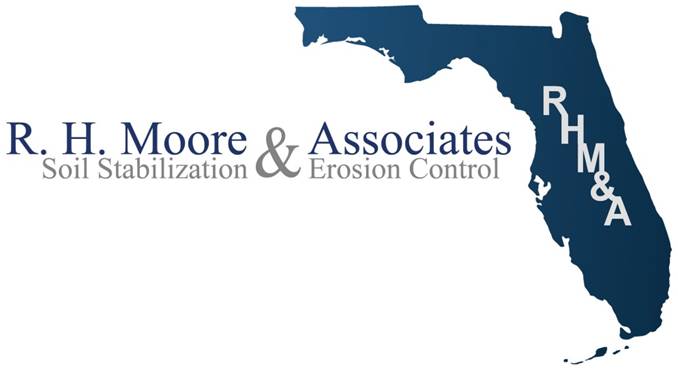
Need the final printable agenda, click here!
For more information or a copy of a presentation, please contact the presenter directly by clicking on his or her name below.
Over 70 people attended this NPDES-focused workshop. FDEP Staff answered questions via an interactive webinar and several local area NPDES coordinators shared their information and asked for input on issues they are having.
NPDES Permit Issues from State Perspective – Borja Crane-Amores, FDEP NPDES Program Administrator
NPDES Permitting Process, Including NNC Requirements – Russ Frydenborg, President Frydenborg Ecologic, LLC
Osceola County NPDES Biannual Report – Angelique Hennon, Osceola County
Seminole County NPDES Outreach – Shannon Wetzel, Seminole County
Altamonte Springs NPDES – April Verpoorten, City of Altamonte Springs
NPDES Outreach Out of the Box – Maryann Krisovitch, FLMS
Lakeland NPDES Issues – Curtis Porterfield, City of Lakeland
Views from a new NPDES Coordinator – Justin Hetu, City of Kissimmee
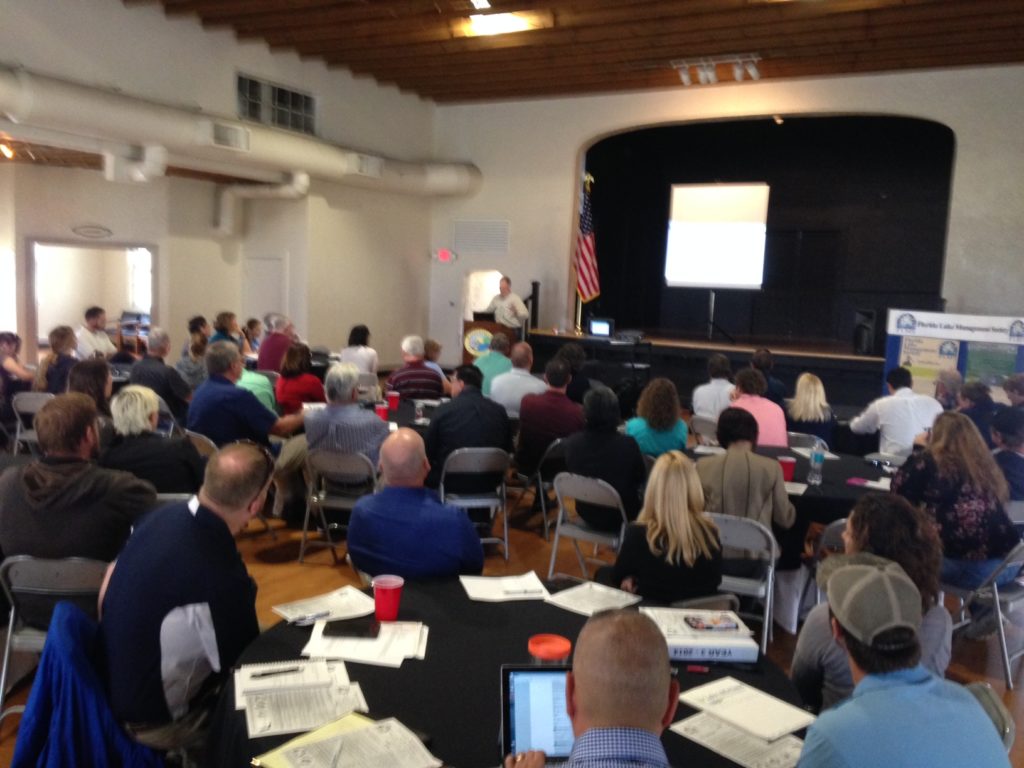
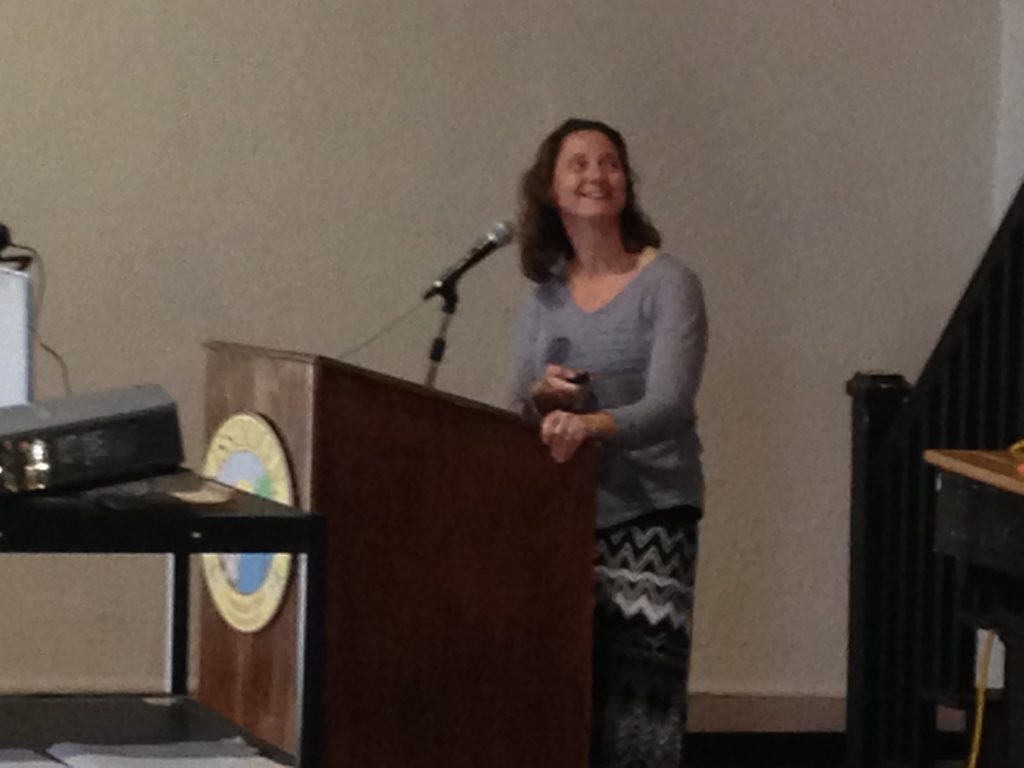
Permitting & NNC Requirements Shannon Wetzel discusses Seminole County’s NPDES permit.
********************************************************************************************************************************************************************************************************************
The central FLMS chapter held a workshop on Thursday, March 12, 2015 from 11am to 3pm. The meeting was held at the Berlinsky House, 300 Monument Avenue, Kissimmee. Topics included: Lake Toho nutrient reduction, re-evaluating your sampling program, fertilizer ordinances, MSBU’s, and baffle boxes. The City of Kissimee gave a tour of their lakefront revitalization project which was in progress the last time FLMS met in Kissimmee.
Click here for last year’s workshop agenda!
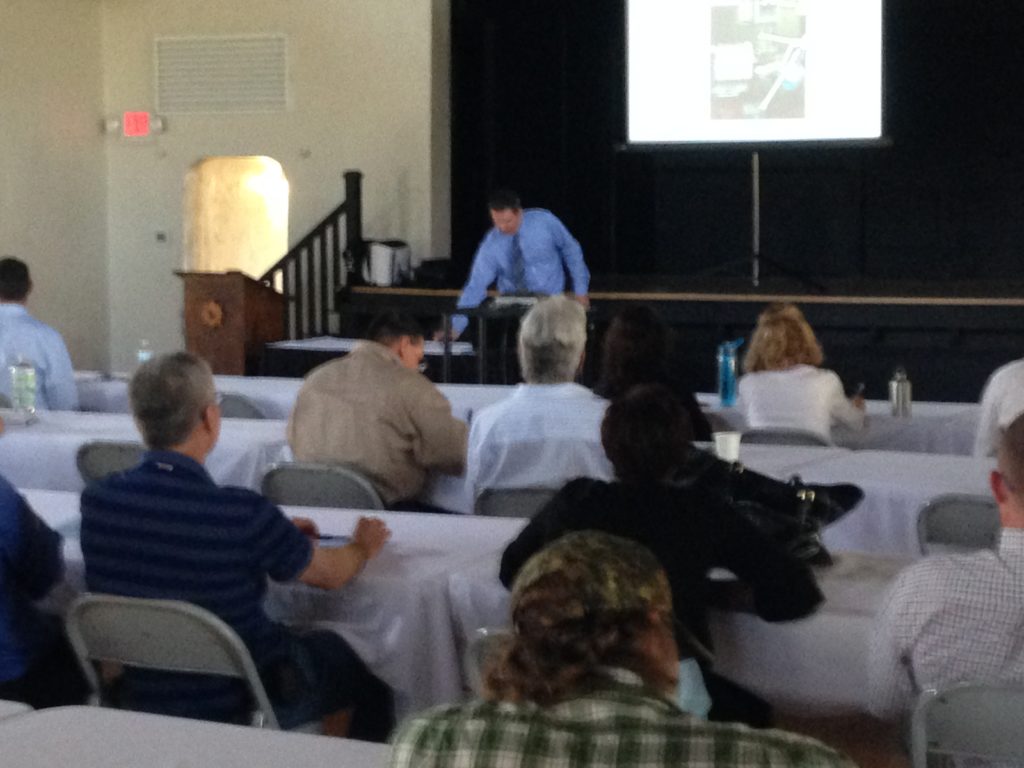
Thank you to our generous sponsor!

***********************************************************************************************************************
The Fall Workshop hosted by the central FLMS chapter was held on October 18, 2013. Topics included MFLs, Lake Apopka and the Upper Ocklawaha Basin, networking and a round table discussion. The event was sponsored by UPI and Vertex Water Feastures.
Click here to view the full agenda.
The Central Chapter of the Florida Lake Management Society was designed to be a forum in which citizens and professionals can meet to identify, educate, and correct the problems concerning our lakes. For more information about the Central Chapter, contact President Sergio Duarte.
Summary of Central Chapter Winter Workshop on February 12, 2013
The Central Chapter of the Florida Lake Management Society hosted a lake management workshop on Tuesday, February 12 from 11am to 3pm at the Berlinsky Community House on 300 Monument Avenue, Kissimmee. Topics included hydrilla management, biological augemntation of waterbodies and results of a street sweeping study. For the complete agenda, click here.
News from the September 5, 2012 chapter meeting
The Central Florida Lake Management Society (CFLMS) hosted a chapter meeting on September 5th, 2012 at the Faculty Club on the Rollins College campus. The central theme of the meeting focused on careers and opportunities in aquatic resources management and was geared toward engaging young scientists and engineers. In addition to captivating the attention of the students and young professionals in the audience, the speakers also did an excellent job providing relevant discussion geared toward the many seasoned professionals in attendance. Throughout the meeting, emphasis was placed on the importance of interaction and sharing of ideas which occurs primarily by participation in professional societies such as CFLMS and the Florida Lake Management Society (FLMS).
CFLMS president, Sergio Duarte, opened the meeting, introduced the theme and pointed out the necessity of engaging students and the next generation of lake management professionals. Rick Baird provided the first presentation and gave a detailed and colorful account of his educational and professional experiences in Orange County. Along with a photo documentary, Rick provided a great overview of the history of the Florida Lake Management Society and the opportunities Florida provides for development within the water resources profession. Rick talked about the importance of citizen involvement and use of self-imposed Municipal Service Taxing Units (MSTUs) to generate funds for implementing water resources projects.
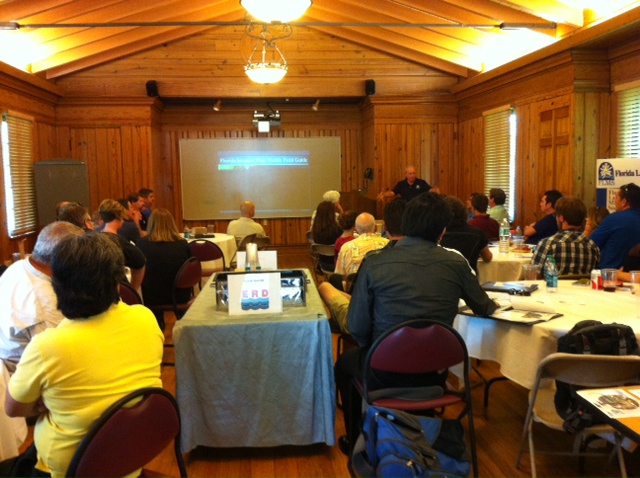
Tim Egan and Amy Giannotti provided an overview of the City of Winter Park lakes management program and some of the challenges and successes they have faced over the years. Marissa Williams discussed the stormwater and lakes management program in the City of Maitland and how a stormwater utility fee has allowed the City to implement many projects that would not have been possible otherwise. Dr. Jim Griffin concluded the meeting with a discussion on Water Atlas use, its advantages, and the ability to convey a wealth of water resources data with a modest investment that can benefit citizens and taxpayers around the State. In addition, Dr. Griffin offered some tips on fishing in Lake Virginia (where he grew up).
The meeting was attended by nearly fifty members and guests. More than ten percent were students so the meeting theme will hopefully resonate and encourage more student and young professional interest in the future. The meeting was held over lunch, so there was plenty of opportunity for networking and meeting new people. Many thanks to our host Ann Francis of Rollins College Environmental Sciences Department and to our sponsors AMEC and Environmental Research & Design, Inc.
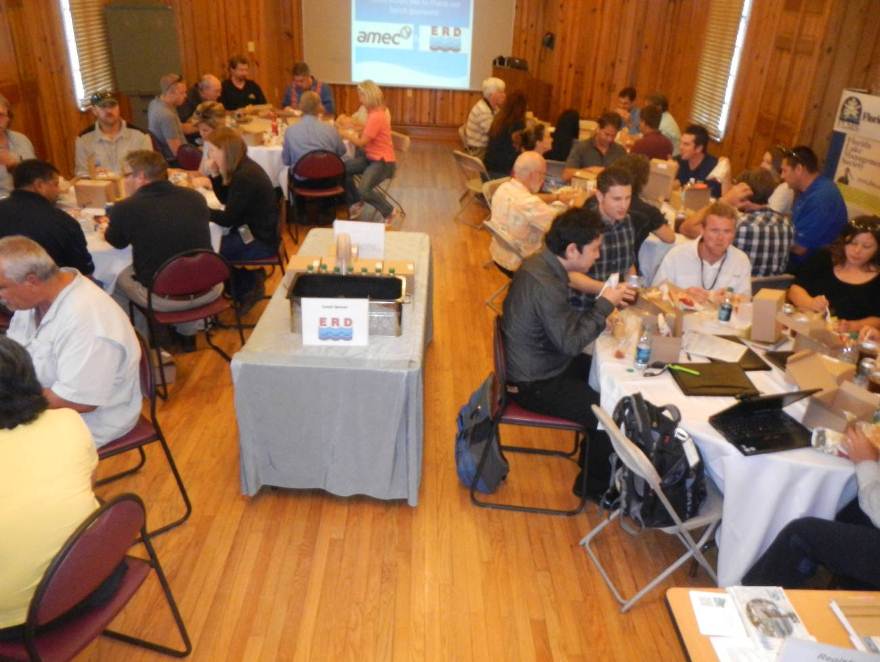
++++++++++++++++++++++++++++++++++++++++++++++++++++++++++++++++++++++++++++++++++++++++++++++++++++++++++++++++++++++++++++++++++++++++++
News from the November 4, 2010 chapter meeting
The central FLMS chapter meeting was held at the City of Casselberry. This meeting brought lake managers together with engineers for a great discussion. Following an overview presentation of the planning and construction by Kelly Brock, the group was given a tour of the City’s stormwater/recreational facility. As part of Casselberry’s revitalization of the downtown area, a portion of the municipal complex located along Lake Concord was transformed from an office building with an adjacent, poorly performing stormwater pond into a functioning stormwater treatment site that now serves as a center for recreational activities. New recreational elements include a play structure, café area, interactive water feature, boardwalk, and amphitheater. An exfiltration trench and nutrient separation baffle boxes were installed to help protect Lake Concord from pollutants in stormwater runoff. The Park incorporates environmentally friendly materials and informational kiosks to educate the public on stormwater practices. The combination of these features creates an aesthetically pleasing park that is also extremely functional.
After the tour, Ron Novy and Sergio Duarte of Orange County Environmental Protection Division shared the results of the Lake Tibet sub-basin study. To view the executive summary of this study, click here.
Dr. Harvey Harper presented the following summary of the Lake Tibet Sub-basin 1 and 2 Study during our Butler Chain of Lakes Advisory Board Meeting on July 19, 2010:
- The study indicated that the average nutrient discharges from sub-basin 1 and 2 are 10 higher that the nutrient concentrations found in the lake and that the total phosphorus (TP) concentrations in the reclaimed water (RW) at the Bay Hill Golf Course were 100 times greater than the average phosphorous concentrations seen at Lake Tibet (1,558 vs. 14 micro gram / liter of TP).
- Phosphorus loadings from the golf course area were found approximately 1,478% greater than phosphorus loadings onto the golf course area from residential areas.
- The stable isotope analysis concluded that the majority of nutrients originated from organic sources. RW is typically categorized as organic in origin, while turf fertilizers are typically from inorganic sources.
- Concentrations of both soluble and TP were substantially higher beneath golf course areas than in more upland portions of the two sub-basin areas.
- The vast majority of phosphorus present in groundwater appears to be in the form of soluble phosphorous which is readily available for biological uptake by algae and plants and detrimental to the water quality of the lakes.
In addition to the reclaimed discussion above, an update on the status of the NPDES Pesticide General Permit requirements was discussed. The results of a recent public meeting with FDEP, F&W and FDACS reviewing the details of proposed permit program that the State of Florida was submitting to USEPA. In the proposal only a select group of agencies need to submit “Notice of Intents” for pesticide applications. All local governments and private applicators are covered under the State’s approved permit and NOIs would not be needed. Click here for the Draft Proposed rule.
A short update on recent projects wa also held. Orange County and Seminole County discussed the results of projects to re-vegetate stormwater pond areas with native species. It was concluded that the first year required heavy maintenance but once established, the native species began to take a foothold against invasive. Continued monitoring was needed before a final conclusion could be developed.
Orange County discussed a new project to incorporate several “next generation” technologies into a nutrient reduction project. A Stormwater Reuse/Harvesting pond with a Solar Irrigation component was mentioned as a current project being planned for the Barnett Park at Lake Lawne. The project would not only provide treatment in meeting the lakes TMDL reductions, but also be an alternatively powered source of irrigation water that would reduce the Parks use of potable water. The pond itself includes a triple treatment cell design that includes a cell for trash/floatable removals, sediment settling and water storage.
It was also noted that the bringing together of the engineers from ASCE and the scientists/biologists from CFLMS was something that was long overdo and continued events should be planned in the future
This is a great opportunity to share information and keep up with the latest lake management issues throughout the year with your Central Florida colleagues.

You must be logged in to post a comment.